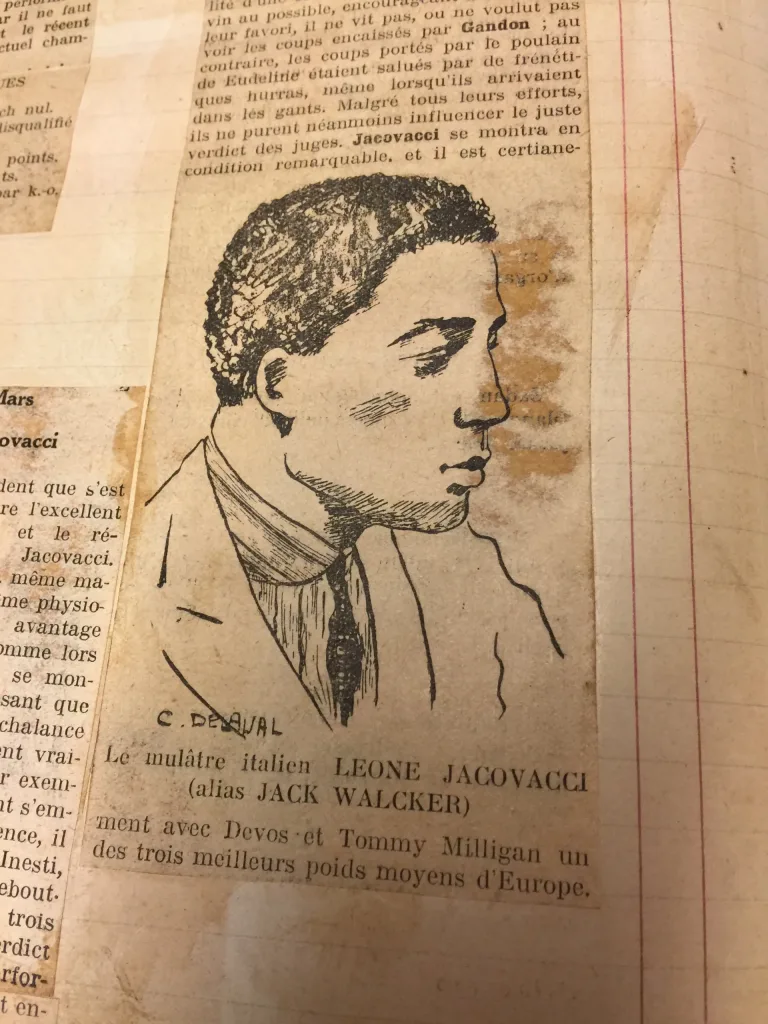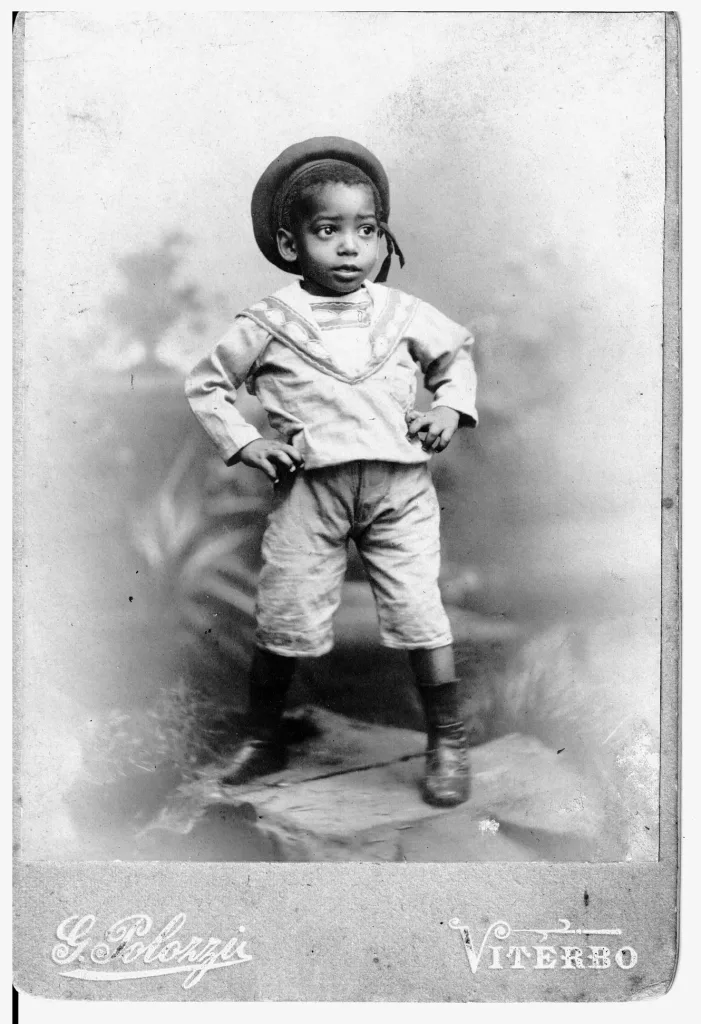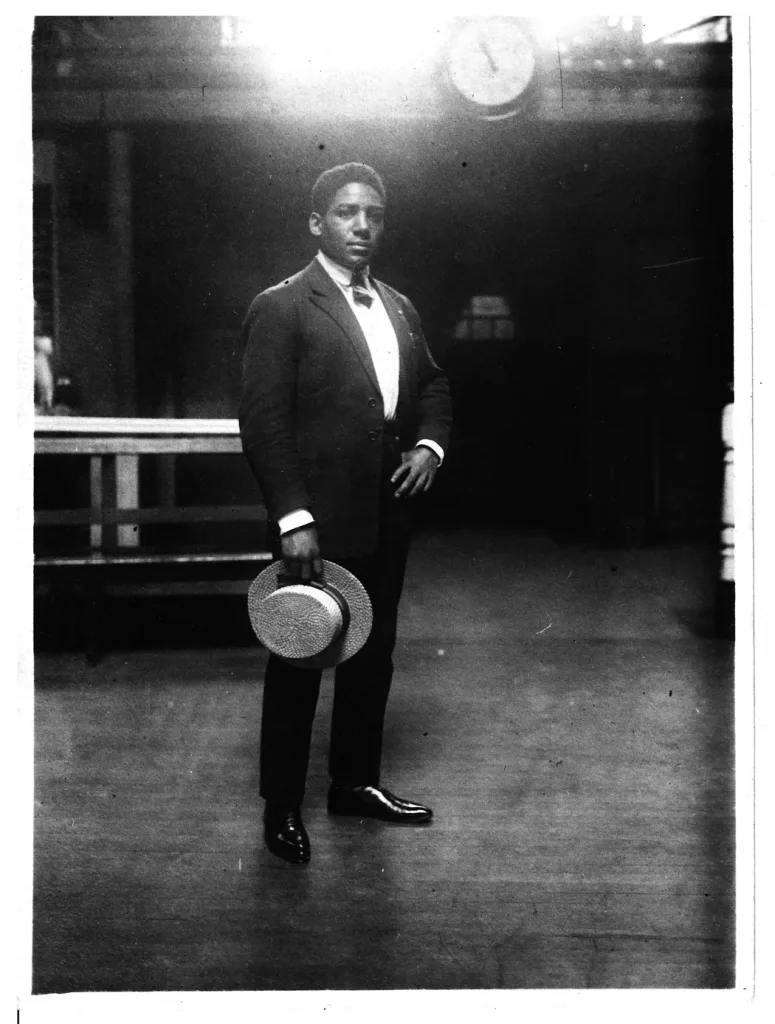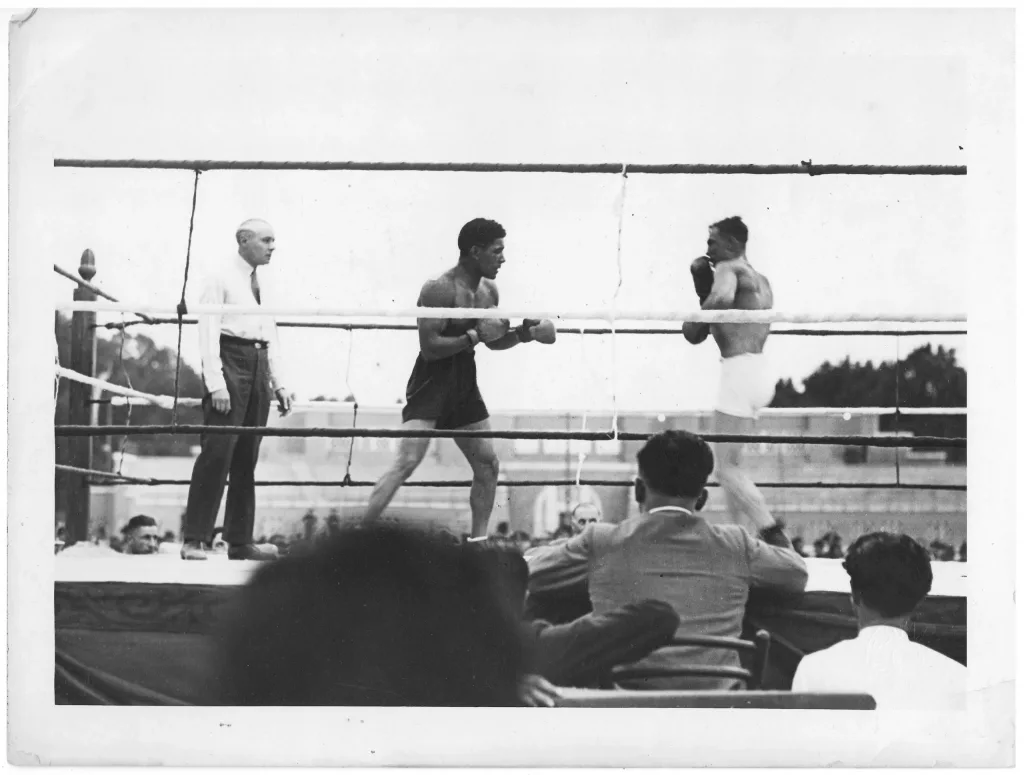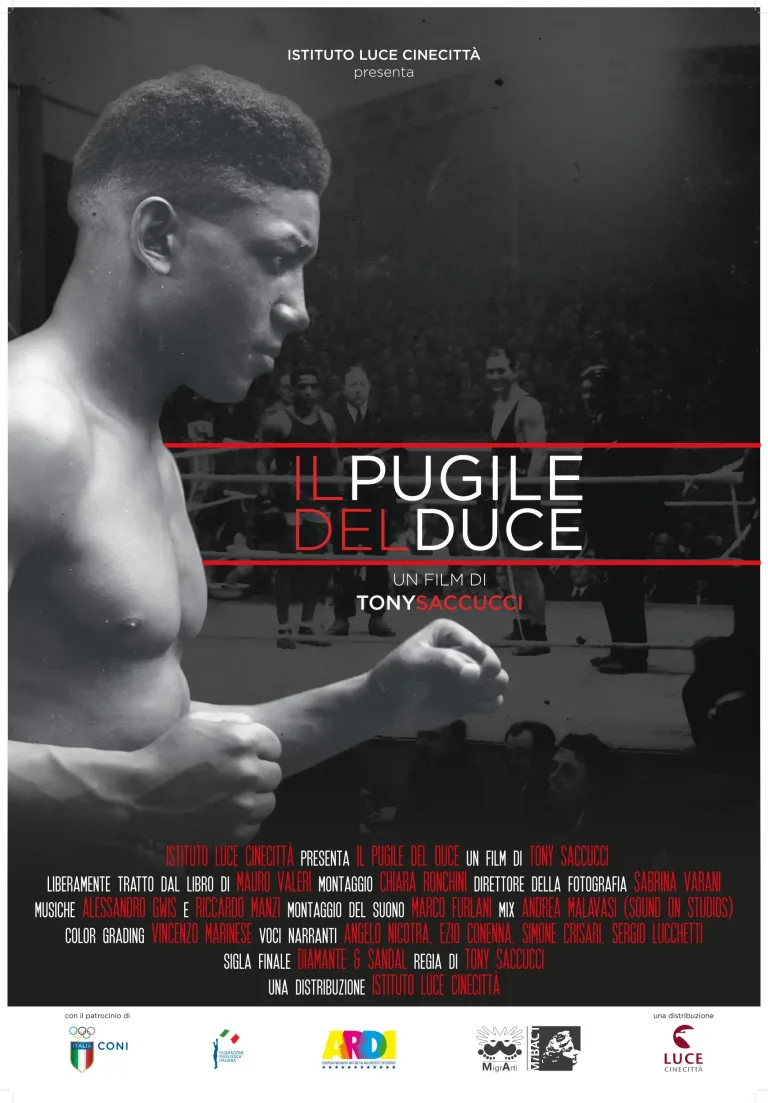
Director Tony Saccucci
Country, yearItalia, 2016
Runtime 65
Technical specs Colore
Production Istituto Luce Cinecitta'
Pressbook
Cinecittà rights Theatrical Italy, Production, International rights sales, Domestic rights sales
Documentary
Il pugile del Duce
The Duce’s Boxer tells the incredible story of Leone Jacovacci, whose career was buried in the archives for decades and only recently brought to light. A boxer who flaunted a perfect technique, Jacovacci was agile, intelligent and a powerhouse. He spoke four languages fluently, five if you count the Roman dialect. He was Italian and maybe even fascist. Certainly not anti-fascist. On the night of June 24, 1928, at the National Stadium in Rome, with nearly 40,000 boxing fans in the bleachers and a live radio broadcast airing in cities up and down Italy, Leone Jacovacci was dubbed the European middleweight champion. Adored by fans around the world at a time when boxing was the sport par excellence, Jacovacci had just one problem: the color of his skin. He was half-Italian and half-Congolese. Before contending for the European title, in fact, he’d struggled for four long years to win the right to the title of ‘Italian’, in a non-stop showdown between the press, the sports organizations, the politicians and the bureaucracy. After the match, however, Mussolini erased the event from Italian history – the original footage of the match, which part of the documentary hinges on, was tampered with and altered beyond recognition – and promptly invented a new champ, the ‘white’ Primo Carnera. Now it’s today’s audiences who get to savor Jacovacci’s victory, thanks to his biographer Mauro Valeri, one of Italy’s leading experts on racism. Valeri dared to put himself in the shoes of a white father who defeated the damnatio memoriae of the fascist censors out of love for his mixed-race son. The film weaves two different strands from a distant past, but linked by an unbreakable thread, with its absorbing retelling of Jacovacci’s rocambolesque adventures in the Congo and all the way to Rome, managing a series of different jobs, identities and countries, and playing matches held on ships, on the street, in small clubs and then in professional rings – utterly failing at not being recognized for what he was: the greatest of all time. That unbreakable thread would eventually lead to a hard-won victory, decades in the making: over racism.
 Film search
Film search
